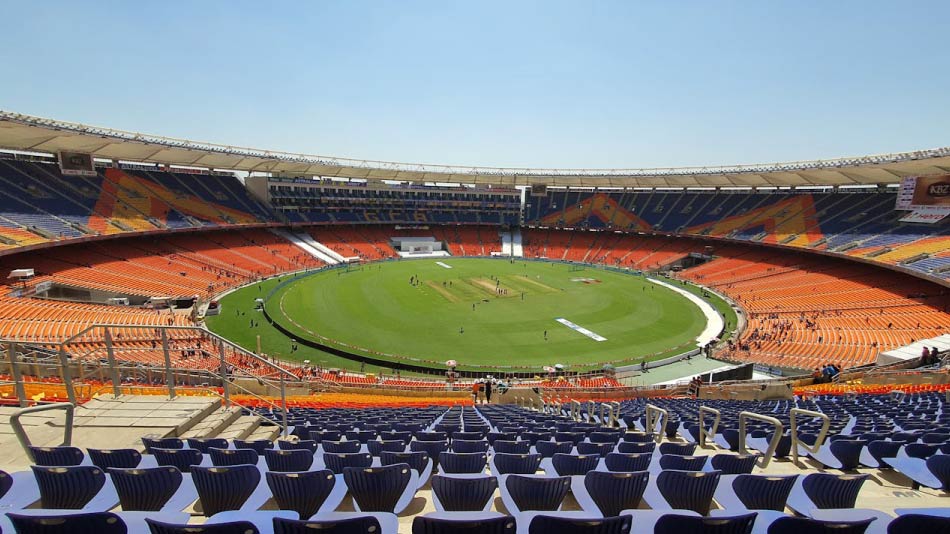Bangladesh, known officially as the People’s Republic of Bangladesh, is a South Asian country with a large population. In 1867, it was part of the British Empire, and during this period, laws were introduced to regulate gambling. These laws are still in effect today, making almost all forms of gambling illegal in Bangladesh. However, there are exceptions like lotteries and horse racing, which are considered “games of skill” and are not unlawful. Unlike other gambling scenes, these activities are allowed under the law.

The primary issue with Bangladesh’s gambling laws is that they are quite old and do not clearly define what constitutes gambling, particularly online gambling. This lack of clarity results in a lot of ambiguity regarding what is allowed and what is not. As a result, many people in Bangladesh try to find loopholes in the law to engage in their preferred gambling activities.
History of Gambling in Bangladesh
Bangladesh was once ruled by the British, which heavily influenced its laws, including those related to gambling. A significant gambling law still in effect today was introduced in 1867. Considering that 90% of Bangladesh’s population is Muslim, and gambling is prohibited under Sharia law, it is no surprise that gambling remains illegal.
The scope of legal gambling in Bangladesh is extremely limited, with the historical context and current religious demographics making any significant liberalization of these laws unlikely. Currently, the only legal form of gambling permitted is betting on horse races, which is tightly regulated. Bettors can only place their wagers on the day of the race and must do so through licensed bookmakers at designated betting facilities.
Furthermore, while the law explicitly bans most gambling activities, it falls short in addressing the nuances of online gambling. There is no clear definition or specific penalties laid out for online gambling activities, leaving a gray area in an otherwise strict legal landscape. This lack of clarity reflects the challenges of adapting a century-old law to the complexities of the modern digital world.
Online Gambling In Bangladesh
In Bangladesh, online gambling operates in a gray area due to outdated laws dating back to British rule. The absence of clear regulations allows many Bangladeshis to access foreign gambling websites. Despite lacking local oversight, online gambling thrives due to the absence of licensed domestic options. Bangladeshi players frequently engage in online casinos and sports betting on offshore platforms.


However, these activities remain illegal under existing laws, with severe penalties for violators. The ambiguity surrounding online gambling leaves operators unable to obtain licenses for services within Bangladesh. Although the law prohibits gambling venues, enforcement is challenging, leading to widespread access for Bangladeshi players. Despite the risks, various gaming sites cater to Bangladeshi users, exploiting legal loopholes. The absence of concrete regulations poses challenges for both authorities and players. It highlights the need for updated legislation to address the growing popularity of online gambling in Bangladesh.
Gambling Laws in Bangladesh
The framework for gambling regulation in Bangladesh is primarily based on the Public Gambling Act of 1867. This Act was initially introduced in India and subsequently inherited by Pakistan, and later, Bangladesh adapted it with modifications to specific sections. Over time, adjustments were made where sections 3 and 4 were amended, and section 2 was repealed, to suit the local context.
Additionally, the Constitution of Bangladesh mandates the state to adopt effective measures to curb activities like gambling and prostitution. Despite these legal provisions, gambling activities continue in various forms across the country. Cafes, restaurants, and pool clubs often serve as common venues for gambling. These establishments frequently face raids by local authorities in efforts to enforce gambling regulations. The ongoing prevalence of gambling in public venues highlights the challenges faced in fully implementing the legal restrictions. It requires updated regulations that address contemporary issues related to gambling in Bangladesh.
The Public Gambling Act of 1867
The Public Gambling Act of 1867, enacted during British rule in India, remains a foundational piece of legislation in Bangladesh. Despite its age, the act remains in force, guiding law enforcement against illegal gambling establishments.
However, the Act does not specifically address online gambling, leaving a regulatory gap exploited by Bangladeshi players accessing foreign gambling websites. This historical legislation shapes the contemporary landscape of gambling regulation in Bangladesh, though it struggles to address modern challenges posed by online gambling.
Legal Status and Penalties
The Public Gambling Act of 1867 serves as the primary legislation controlling gambling in Bangladesh. This law specifies that engaging in gambling can result in a fine of up to BDT100 or a maximum imprisonment of one month. Owners or operators of gambling facilities face harsher penalties, with fines of up to BDT200 or imprisonment of up to three months.
This act strictly prohibits most gambling activities, except for horse racing betting and certain
types of lotteries. Over the years, amendments have allowed specific lotteries and prize bonds, distinguishing them from typical gambling activities. Additionally, a tax of 21% was introduced on horse race betting and bookmaker operations.
Legality of Lottery in Bangladesh
Under the Public Gambling Act, initially enacted in 1867, most gambling forms are illegal, but the law has been amended to allow certain lotteries. Lotteries are defined as wagering contracts, which are agreements to pay out based on the occurrence of a specific event.
According to Section 30 of the Contract Act 1872, all wagering contracts are void, meaning no legal action can be taken to recover money lost in wagers. However, there are exceptions for horse racing bets over BDT500, which do not fall into the category of void wager agreements. This creates a legal pathway for some forms of betting while maintaining a general prohibition on gambling.
Wagering Agreements and Lotteries
In Bangladesh, lottery tickets are considered “wagering agreements.” Sellers agree to pay winners a predetermined sum if a specific event, such as a raffle draw, occurs. However, the states that these agreements are void. This means if someone is deceived in such transactions, they cannot legally claim their winnings, as the agreements are invalid from the start.
The situation differs for lotteries authorized by the government. According to Section 294A of the Penal Code 1860, government-sanctioned lotteries are legal. Anyone running a lottery without government approval faces serious penalties, including fines, six months of imprisonment, or both.
People who engage in unauthorized lottery activities, like paying out prizes without approval, can be fined up to BDT1,000. This includes any actions related to managing or promoting unapproved lottery events.
Benefits of Regulating Online Gambling in Bangladesh
Despite the rise of digital platforms, the country’s stance on gambling, influenced heavily by its majority Muslim population adhering to Sharia law, remains rigidly restrictive. Let’s explore the potential benefits of regulating and legalizing online gambling in Bangladesh.
Economic Benefits
Revenue Generation: Legalizing online gambling can open a substantial revenue stream for the government through licensing fees, taxes, and operational levies. Countries like the UK and Malta have demonstrated that a regulated online gambling market can contribute significantly to the national treasury. In Bangladesh, such funds could support public welfare programs, infrastructure developments, and educational initiatives.
Employment Opportunities: The establishment of a legal online gambling industry would create numerous job opportunities. From tech support to customer service, security, and administrative roles, the economic stimulus could be considerable. This is particularly pertinent given Bangladesh’s ongoing struggle with unemployment among its youth population.
Boost to the Tech Industry: Encouraging online gambling can catalyze growth in the tech sector, prompting advancements in digital security, software development, and mobile technology. This aligns with Bangladesh’s vision of becoming a technologically advanced nation as outlined in its Vision 2021.
Social Benefits
Protection from Exploitation: Illegal gambling markets are often unregulated and exploitative. Players may face unfair games, fraud, and theft with no legal recourse. Regulating online gambling ensures that players are protected through stringent oversight, fair play enforcement, and the security of their personal and financial information.
Responsible Gambling: With regulation, the government can mandate responsible gambling practices such as setting betting limits, providing self-exclusion tools, and promoting awareness about gambling addiction. This can help mitigate the social impact of gambling and ensure it remains a recreational activity rather than a socio-economic problem.
Reduction in Crime: Illegal gambling is often linked to organized crime and money laundering. By legalizing and regulating online gambling, the government can curb these illicit activities significantly. The transparent operation of gambling platforms under government oversight would reduce the influx of money into the black market.
Cultural and Regulatory Benefits
Alignment with Modern Values: Modernizing the gambling laws can reflect a more progressive stance that aligns with global trends. This can improve Bangladesh’s international image and attract foreign investors and tourists, who may contribute to other areas of the economy.
Regulatory Framework: Introducing online gambling with a robust regulatory framework can serve as a model for other sectors. It demonstrates the government’s capacity to adapt and enforce laws in rapidly changing environments. It’s crucial as digital transformation impacts more areas of life.
Cultural Sensitivity: While mindful of cultural and religious ethos, the government can structure gambling laws to accommodate these sensibilities. For example, it can offer types of gambling that are less contradictory to cultural norms or restrict the operation of gambling platforms to certain times or in specific contexts.
The discussion about legalizing and regulating online gambling in Bangladesh is multifaceted. While there are significant potential benefits, such as economic growth, crime reduction, and better consumer protection, the social and cultural implications must be carefully considered. The government must engage with various stakeholders, including religious and community leaders. They should devise a regulatory framework that balances economic benefits with cultural values.






